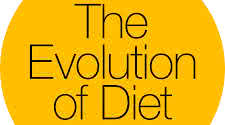A Quick Lesson into Human Dietary History - Our Ancestors Meals

To Take a Step Forward we Learn from our Past
Compared to our ancestors of tens of thousands of years ago, we obviously eat far more fat, cholesterol,
sugar, salt, and processed, refined, industry-modified, cooked and fried foods. Perhaps less obvious, but
no less true, we eat much less fresh fruit, vegetables, tubers, whole meal (bran) and unrefined cereals.
As striking as these differences are, many experts believe that the most physiologically and metabolically
significant dietary disparity between us and our ancient forebears is in the amount of probiotic bacteria
that we consume.
Our ancestors had two methods to preserve foods: drying, which destroys many important nutrients; and
fermenting, which maintains most essential ones. Going way back, when there were no weapons for hunting,
most meat came from dead animals, and most of that was no doubt nearly rotten when found. Whether by
imitating animals or through trial and error, early humans learned that if meat was buried for some time,
it not only became edible, it didn't taste half-bad. Today, we know that even if bacteria and fungi of all
sorts are present on meat in the beginning, if the meat is fermented under anaerobic (oxygen-free)
conditions - as when buried - after a while, virtually all the bacteria and fungi will disappear except
one: Lactobacillus plantarum.
Burial was used for all sorts of food and enabled our ancestors to produce a wide variety of fermented
foods including meat, fish, vegetables, wine and beer. An intimate relationship has developed over the
course of human history with these and other beneficial microorganisms, such that they actually form an
integral component of our bodies, equivalent in biological power to the almighty liver. The capacity of
L. plantarum and other probiotics to eliminate undesired bacteria continues to be used to preserve food
by the food industry as well as by families and cultures around the world.